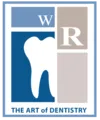This blog post can not be found
Contact Us
Send Us an Email
Our Location
Find us on the map
Hours of Operation
Our Regular Schedule
Monday:
9:00 am-4:00 pm
Tuesday:
9:00 am-4:00 pm
Wednesday:
9:00 am-4:00 pm
Thursday:
9:00 am-4:00 pm
Friday:
Closed
Saturday:
Closed
Sunday:
Closed
